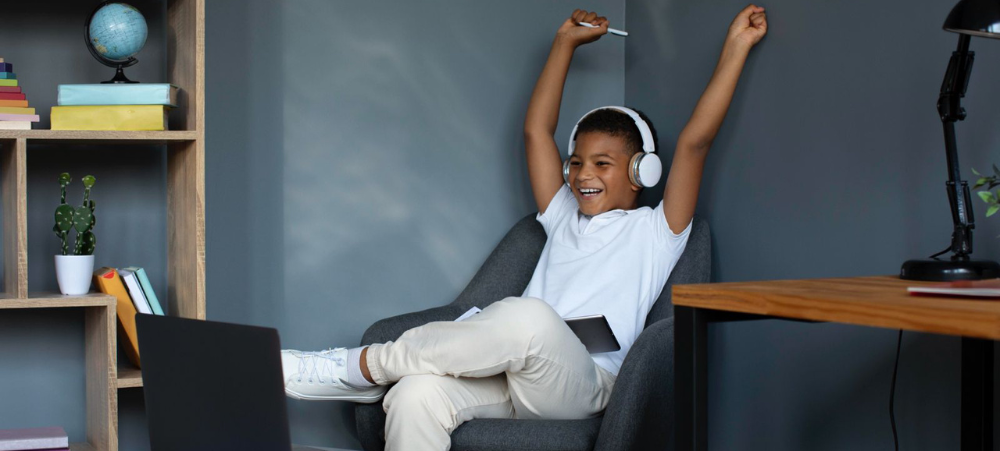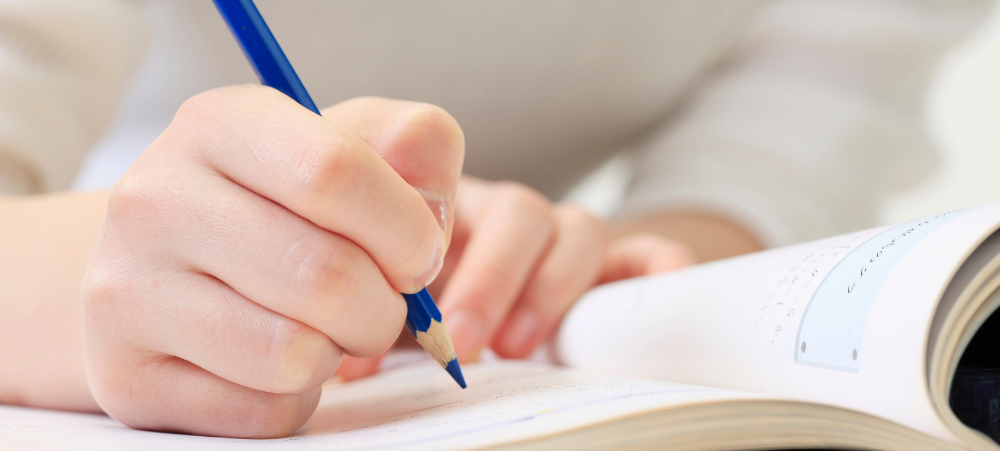The new school term has started, and many parents are already wondering if there’s anything they can do to make learning a little bit easier for their kids. You’re in luck! Here’s 15 research based study tips that will positively impact learning:
1.Self-explanation.
Come up with explanations, in your own words, of to-be-learned concepts or ideas.
Rather than solely relying on exact provided definitions (for example, from lectures or textbooks), create your own, while still making sure that they are accurate.
2.Use a timer.
Set a timer for 20 – 25 minutes, and start learning…
When the buzzer rings, take a five minute break…
After two to three repetitions, take a thirty-minute break.
Repeat!
3.Interleaving.
When studying, instead of focusing exclusively on one concept or subject at a time, alternate between them.
For example, if you are studying subject A and subject B, rather than practice only A on one day and only B on the next, you can practice both on each day by switching back and forth between them.
4.Dig deeper.
It’s hard to remember a string of facts and figures if you don’t push further.
Ask questions like Why? and How?
It’s called elaboration.
Elaboration helps you combine new information with other things you know. And it creates a bigger network in your brain of things that relate to one another.
That larger network makes it easier to learn and remember things.
5.Books are still best.
Research suggests that traditional print materials still have the upper hand when it comes to studying.
It has also been found that students required more repetition to learn new material if they were reading on a computer screen versus reading printed material.
6.Be the ‘teacher’.
Research shows that students have better memory and recall abilities when they learn new information with the expectation of having to teach/explain it to someone else.
Studies also suggest that students are more engaged and will instinctively seek out methods of recall and organization when expected to take on a “teacher” role.
7.Exercise help learning.
The benefits of exercise on the brain have been well established in the fields of health, fitness, and psychology. Studies show our brainpower gets a boost following even a short workout.
According to Dr. Douglas B. McKeag, breaking a sweat shortly before cracking the books can make you more alert, open, and able to learn new information during your post-workout study session.
8.Reading and re-reading is not studying.
Reading and re-reading textbooks merely lead students to thinking they know the material better than they do since it is right in front of them.
Rather use active recall: closing the book and reciting (and explaining) in your own words everything you can remember up to that point to practice long-term memorization.
9.Test yourself.
Take advantage of old exam and test papers available as practice tests/exams. You can get a sense of different testing styles and become familiar with how the information might be presented on the real test/exam day.
A 2011 study found students who tested themselves with a practice test/exam after learning the material, retained 50% more of the information a week later than their peers who did not take a practice test/exam.
10.Don’t overlearn.
Once you’ve been able to cycle through your work without making a mistake (or too many mistakes), you may feel a sense of satisfaction and call it a day, or you may feel a charge of adrenaline and be tempted to continue studying the same material.
Research suggests it is better to take a break or move on to something else, instead of overlearning.
11.Stop multitasking.
Multitasking is a myth. You may think you’re killing two birds with one stone by texting or quickly checking your Facebook page while studying, for example, but you’re actually forming poor study habits.
It’s also not useful having your phone on silent but often checking if there’s any new messages, or looking at your phone every time it vibrates to indicate a new message.
According to researchers, so-called “multitasking” extends your study time and ultimately may damage your grades. So when you’re studying, switch off your phone completely and put it somewhere out of sight.
12.Sleep is crucial for learning.
There’s even a term for it: sleep-learning.
As the memory-consolidation process does its best work during slow-wave sleep, your brain could be getting both the restoration and reactivation it needs during its time of rest.
So don’t even think about studying through the night instead of getting in some much needed sleep.
DID YOU KNOW that, according to certain researchers, reviewing study materials before bed can help you brain learn, even in your sleep?
13.Stress hinders learning.
UC Irvine researchers found that stress lasting as briefly as a couple of hours can engage corticotropin-releasing hormones that disrupt the process of creating and storing memories.
Taking study breaks, exercise, or drawing a few deep breaths will help your studying if they lower your stress levels. Also, planning ahead by means of a study schedule, will greatly reduce anxiety about not having enough time to study. Remember, break down large chunks of work into smaller sections and plan your study time accordingly.
14.Learning styles
Learning styles are a hotly debated topic. Researchers and learning experts debate and question the concept of learning styles; some even go so far as to say they don’t exist.
The overall conclusion is this: Despite the amount of work on the subject, scientists have found “virtually no evidence” to support the concept of learning styles, though they left the possibility open to further investigation in years to come.
If you have found a way that works for you, great, but if not (yet) – it would be recommend you don’t go out of your way to try to make your material or the way you learn fit a specific style because it may not be worth the time or effort.
15.A change of scenery impacts learning and concentration abilities.
Psychologist Robert Bjork and many learning specialists suggest that simply moving to a different room to study (or going a step further and learning amongst the great outdoors) could increase both your concentration and retention levels. Definitely worth a try!
Their unique power comes from precise cognitive skills testing, and individualized, one-on-one cognitive skills (brain skills) training offered in-centre and online.
From 6-year old students to senior adults, their customized cognitive training can benefit anyone who wants to train and strengthen the underlying foundational skills the brain uses to think, read, learn, remember, and pay attention.
- 15 Research Based Study Tips to make Learning Easier this Term - August 6, 2021





